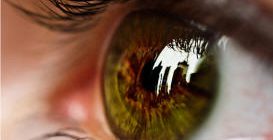 A photo from open sources
A photo from open sources
Biologists from Irkutsk State University together with colleagues from the University of North Florida (USA) studied the exchange substances of Baikal actinobacteria – large microorganisms, able to synthesize biologically active substances. It turned out that they lack the genes common to this group enzymes responsible for the production of antibiotics. It means that these microorganisms fight microbes with other proteins and, possibly so far unknown to science compounds. Article published in Aquatic microbial ecology. This work was supported by a grant. Russian Science Foundation.
Actinobacteria – a class of bacteria of large sizes and complex shapes, with the ability to destroy toxic compounds, polluting the environment. They are manufacturers of secondary metabolic products that they do not need for growth and development, but perform some other functions. Among these compounds are growth factors and pheromones stimulating various cellular processes for “chemical communication.” Man uses the property of these substances to inhibit the growth of pathogenic bacteria and fungi, and applies them in medicine. In this work, scientists investigated the formation of secondary metabolic products in 24 strains actinobacteria isolated from Baikal sediments. Scientists have compared its processes in marine and freshwater organisms.
“Previous studies highlight ecology and patterns the geographical distribution of actinobacteria from terrestrial and marine ecosystems. However, representatives of this class from freshwater sediments are still not well understood, “- said RSF grant project manager Maxim Timofeev, doctor Biological Sciences, Director of the Institute of Biology of Irkutsk State University. Samples were taken from the bottom of the lake on 200 meters depth. To get colonies of actinobacteria, deposits were placed on a growth medium that allowed inhibit the growth of other microorganisms. Three days later from the colonies DNA was isolated and using molecular methods determined whether genes specific for actinobacteria – so you can make sure that bacteria necessary for research have grown. In this case and in the experiment itself, the DNA strands were “propagated” because in the very the cell material for analysis is too little, and artificial copying a molecule solves the problem.
Researchers have paid attention to genes that are associated with synthesis. biologically active compounds. They found that in isolated strains of Baikal actinobacteria lacking FAD-dependent genes halogenase. These enzymes use the energy contained in FAD, and responsible for attaching to various halogen molecules, for example chlorine and bromine. The result is antibiotics such as tetracyclines, chloramphenicol and others. Most halogenases have marine microorganisms. The fact that the Baikal actinobacteria, indicates their adaptability to life in low salt water. However, biological activity was observed in 75% of the strains isolated during the study actinobacteria. So, it manifested itself at the expense of others enzymes.
“Conventional actinobacteria may include halogen atoms in the composition chemical molecules that they synthesize. Lack of this abilities in Baikal actinobacteria is their unique distinction, talking about the long evolution of these species in conditions ultra fresh environment. Features of Baikal actinobacteria allow us to talk about their significant potential for production antibiotics and natural compounds unknown to science, ”says Maxim Timofeev.
A source
DNA






